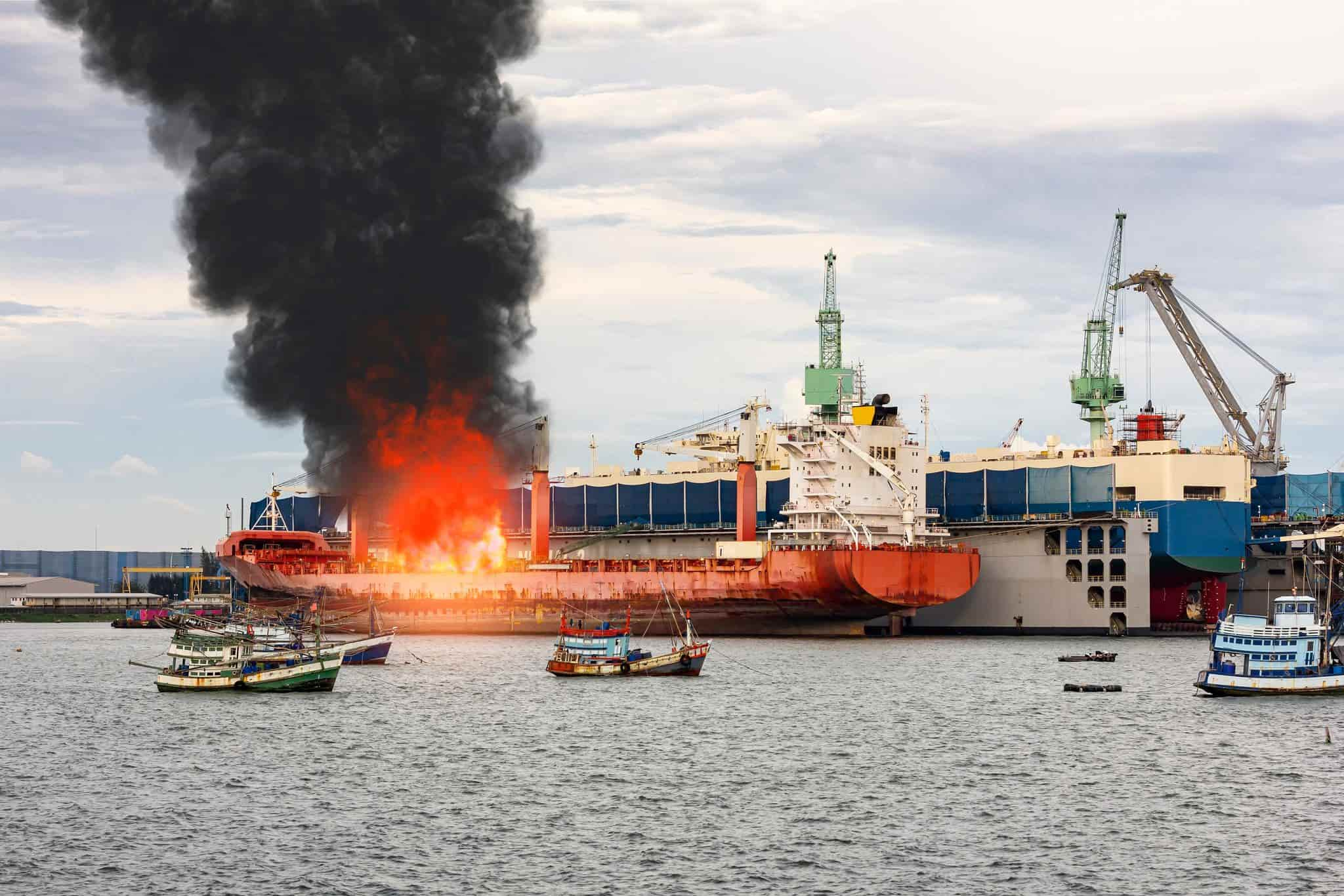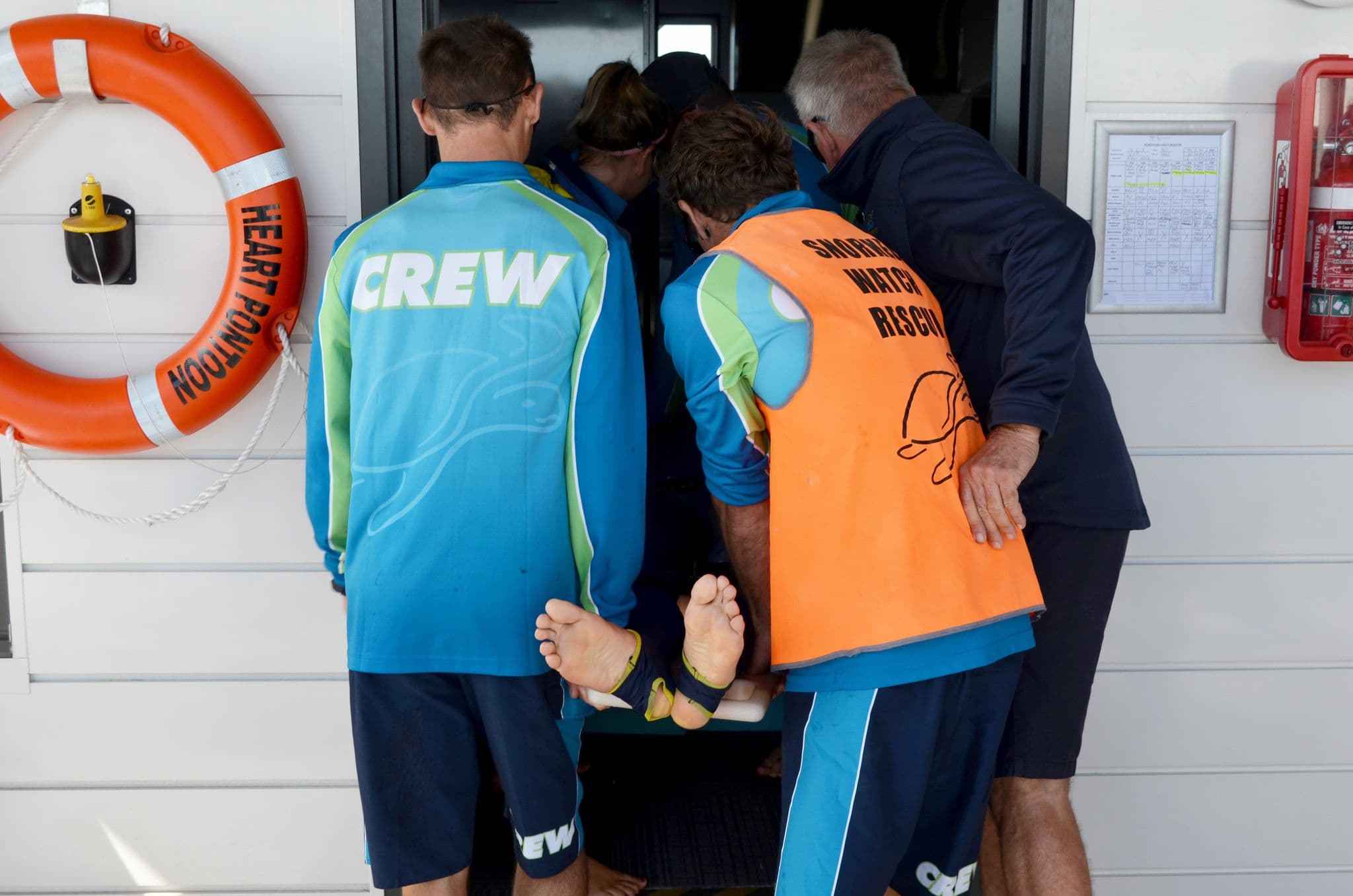If you’re a maritime worker suffering from an on-the-job injury, contact The Townsley Law Firm immediately to discuss your available options for compensation. Maritime laws protect injured employees and provide the opportunity for workers to recover compensation for medical treatment, lost wages, and additional losses for job-related injuries.
Working on the water can be dangerous. You face various hazards while working onboard a water vessel, oil rig, or another structure at sea. You could get hurt in a vessel collision, explosion, fire, or another accident while performing your job duties. Even in the safest working conditions, you could find yourself involved in a scenario that makes it impossible to prevent suffering an injury or illness.
The Lake Charles maritime/offshore injury lawyers of The Townsley Law Firm are ready to represent you in your case and seek the compensation you need to heal. We will use our knowledge of maritime laws to secure the money you’re owed to pay for the expenses you incur due to your injury. Call us at (337) 377-0584 for your free consultation today.
Maritime accidents are common. Unfortunately, the inherent dangers workers face while performing their work-related responsibilities means they encounter hazards constantly. Flammable materials, heavy machinery, and cramped working areas can increase the chance of an accident.
The most common types of maritime accidents include:
If you were involved in any of these types of offshore accidents, do not hesitate to call The Townsley Law Firm and learn about what we can do to help you secure compensation for your injuries.
Every employee in the maritime industry must follow safety standards to avoid causing harm to others. Unfortunately, accidents happen. A range of scenarios could arise and lead to a worker’s injury or death. The most common factors contributing to maritime/offshore accidents are below.
Human error is a common reason for accidents while working offshore. An error could lead to someone’s injury, whether it’s made by a vessel operator, maintenance worker, or another employee responsible for working on the vessel.
Common examples of human error resulting in maritime accidents include:
Maintenance employees and other crew members are supposed to maintain all machinery and equipment aboard a vessel, so it functions properly. Failing to perform the necessary maintenance and repairs could cause the equipment to fail, placing the operator at risk of severe injury.
The most common reasons for equipment failure include:
Operating a vessel offshore can be a challenge. The operator must navigate around other boats, barges, and obstacles in the water. Collisions can occur for various reasons, including:
Maritime workers must complete training to learn how to perform their jobs and react in emergencies. Whether someone is responsible for operating the entire vessel, repairing machinery, or loading cargo, they must perform their job correctly.
Unfortunately, some companies will knowingly hire inexperienced employees when there’s a staffing shortage. Or an employer will choose not to provide training to cut down on their budget and save money.

You’re at risk of various injuries while working offshore. The most common include:
Unfortunately, some injuries cause permanent damage. If you can’t recover fully, you could end up with a disability that prevents you from returning to your job. Some people suffer chronic pain or mobility issues from their injuries.
If you require ongoing medical treatment and assistance, you face expensive medical costs. You might worry about how you’re going to afford to pay. You could have some options for securing the compensation necessary to cover your medical bills and associated expenses, so you’re not forced to pay out of pocket.
If you were injured in a maritime/offshore accident, there are multiple laws available to protect you so you can pursue compensation for your injury.
Under the Jones Act, seamen have specific protections following an on-the-job injury or illness. Since workers’ compensation laws often don’t apply to maritime workers, you could use the Jones Act to pursue the compensation you need to pay for your medical care, cost of living, and other expenses.
Only eligible seamen can pursue compensation under the Jones Act, such as:
You’re considered a seaman if at least 30 percent of your work time is aboard a vessel in navigation and your responsibilities are related to the functioning of the vessel. “In navigation” does not necessarily mean the vessel must be in motion. If it’s anchored or moored temporarily, it’s considered “in navigation.”
Common vessels involved in maritime/offshore accidents include:
Maritime workers injured while performing their jobs on or near navigable waters can seek benefits under the Longshore and Harbor Workers’ Compensation Act. Benefits can include:
Not all maritime employees are entitled to benefits. Only individuals who sustain an injury or illness while performing their job-related duties on navigable waters or crafting, unloading, loading, or repairing a vessel can qualify. Examples include:
Maritime workers excluded from coverage under the Longshore and Harbor Workers’ Compensation Act are:
Under the Jones Act, oil rig employees are typically eligible for compensation following a workplace injury. However, this law only applies if they worked on a rig not affixed to the seabed.
If you suffered injuries while performing your job on a permanent stationary platform, you might qualify for compensation under the Outer Continental Shelf Lands Act. You must have worked on the exploration, transportation, removal, or development of natural resources by pipeline. You’re not allowed to pursue a claim if you’re a vessel crewmember, employee or officer of the United States, or vessel master.
The Death on the High Seas Act allows surviving family members of deceased maritime workers and vessel passengers to recover compensation for their losses. Eligible surviving relatives include:
You can only file a claim under this act if your loved one’s death occurred due to an unseaworthy vessel or shipowner negligence. The death must have also happened more than three miles from the territorial coast of the United States.
Common examples of shipowner negligence include:
An unseaworthy vessel means the vessel your loved one was working on contained defective or dangerous conditions that contributed to their death. For example, they were using equipment that malfunctioned through no fault of their own, or an inexperienced crewmember they worked with caused a fire on board.
The Townsley Law Firm is ready to discuss the maritime accident you were in and determine the available options to help you secure the compensation you need. We understand the devastation of getting hurt while performing the duties of your job. You have a right to pursue a claim under specific maritime laws, so you have the financial means necessary to pay for your medical bills.
Since 1995, we have helped clients who need legal representation get back on their feet after a maritime accident. Suffering an injury or illness can be disruptive to your daily routine. If you can’t return to work, you can’t make the money you need to afford your expenses. You could also struggle to care for yourself and your family. You can depend on our legal team to advocate for your rights and fight for the maximum compensation available so you can heal and move forward with your life.
If you sustained injuries in an accident offshore, call The Townsley Law Firm at (337) 377-0584 right now for a free consultation with one of our Lake Charles maritime/offshore injury attorneys.

